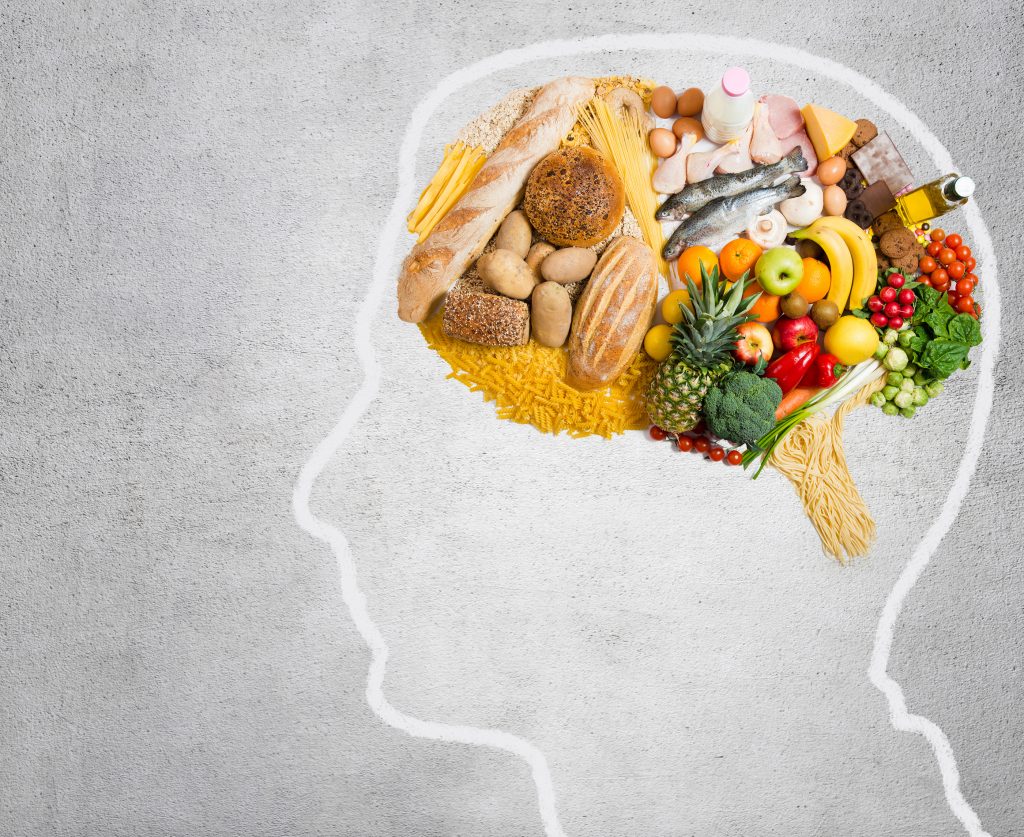
Dyslexia
October is International Dyslexia Awareness month. Here are a few important facts about this learning disability when focussing on pre-primary children.
Dyslexia is a specific language-based learning disability that affects both oral and written language and is later marked by difficulties with word recognition, poor spelling and poor decoding abilities. Research shows that 10-15% of people are affected by this condition.
Dyslexia is diagnosed by medical practitioners or clinical pshycologists, but parents and teachers are in the best position to identify a child presenting with risk indicators of this condition as early as 4 or 5 years old.
It can appear that these children are less efficient at processing letters and sounds appropriate to their age. They may have difficulty pronouncing words (e.g. busgetti for spaghetti, mawn lower for lawn mower). Be slow to add new vocabulary words or be unable to recall the right word. They may have trouble learning the alphabet, numbers, and days of the week, colours, shapes or how to spell and write his or her name. Difficulty telling and/or retelling a story in the correct sequence may also be an indicator. Some days they can seem to remember, then other days everything is forgotten. Don’t despair, with the right approach they will get there in the end.
Dyslexic children can learn a second language, like their peers, and should not have a problem with the oral language, but will stuggle with the written language. These children require an extraodinary effort to read or write and to stay engaged in schoolwork.
People with dyslexia are often creative and there are many ways this creativity can show itself. Focus on things they are good at. Praising even small achievements helps to maintain their self-esteem. Early intervention yields quicker change for the child and can prevent the child from suffering from low self-esteem and anxiety. In South Africa we are not generally sensitive to the needs and personal struggles of people with dyslexia because of a lack of awareness.
Yet we can all make an effort to change this by accepting each child as God has created them and cheering them on as they live and learn.
Sources
https://www.nessy.com/uk/parents/dyslexia-information/10-facts-every-parent-needs-know
https://www.news24.com/parent/learn/learning-difficulties/dyslexic-children-are-falling-under-the-radar-local-clinical-psychologist-shares-nine-facts-about-dyslexia-in-sa-20201001
https://www.readingrockets.org/article/common-signs-dyslexia-0
Mrs G Haux
Head of Pre-primary

Flexibility
Change is uncomfortable and most of us fear change. It uproots us and make us nervous. We do not see change as a challenge but as a threat. We do not see the value of change. It has the power to break us if we do not have the right heart attitude. Over the last months, educators, parents and children have had to learn the valuable quality of flexibility. There have been many opportunities to teach this character trait to our children but it has also been a test of how flexible we as adults really are.
A dictionary definition for flexible is: capable of bending without breaking or not getting upset when plans change; being able to be easily modified to respond to altered circumstances; adaptable – ready and able to change and adapt to different circumstances. The Latin word - flexibilis – from ‘flectere’ means ‘to bend’.
The opposite of flexibility is stubbornness which means remaining stiff and fixed in one position. Stubborn people are obstinate and refuse to bow; they are determined not to change their attitude or position on something. It is common knowledge how difficult it is to work with or be with such people. A child may cry, pout, complain even throw tantrums when they do not get their way. They always know better, go against authority and can never be the least.
Self-control must be encouraged in this changeable world. Children should be made to see that the changing situation is for the better. Children do not always have to know why something must change. They should learn to accept authority and listen immediately without asking questions.
To be flexible does not mean to be weak, to give in or compromise what is right. To be flexible does not mean to give in to something that is wrong.
The stems of some palm species can bend as much as 40 to 50 degrees before snapping. Palm trees bend in storms, they do not break. Their spaghetti–like roots grow into a ball which give the palm tree a very strong root structure. The leaves fold up against hard weather which makes the palm tree a perfect example of flexibility. Is this not what we want our children to be like? “For God gave us a spirit not of fear but of power and love and self-control” 2 Timothy 1:7 Are we not teaching them also that it is a delight to do the will of God? (Psalm 40:8)
Source: Flexibility. Character First. Education Series 3, Booklet 6
Mrs L Stegen
Head of Foundation Phase

Developing Empathy
How can a child be trained to be less self-centered and more considerate of others? Peter Gray describes empathy as ‘a tendency to connect emotionally with others, to see things from others’ point of view, and to feel sympathy for others’ misfortune.’ Consider a world where people stop and think about the feelings of others.
Children can be self-centred. At home, in the classroom and on the playground, the first person they root for is themselves. They make sure they are first in the line, they shout the answer before anyone else, they tell the best stories during lessons, they finish their work first, and the list goes on. These traits can be put down to childish behaviour but if a child in not ‘trained in the way he should go’ these selfish traits continue into teen and adult hood. The world is full of adults who never seem to have outgrown this childish trait.
Empathy must be taught and developed. Adults must slow down and focus on things like kindness and empathy. Help children understand that the world does not revolve around them. Insist on politeness (even when the child does not feel like it), help carry groceries or rake leaves for an elderly neighbour. Hold family meetings to understand the perspective of other family members. Encourage empathy for peers and classmates. Ask children to consider their peers’ perspectives. Point out people, either in everyday life, in books or movies who are considerate of others.
Children learn from the adults in their world. The way adults treat the waiter at a restaurant, the cashier at the till, the car guard or the neighbours will teach your child how to empathize with others. The way in which the teacher handles a sick classmate or encourages a weaker child, listens to a ‘break story’ or helps a classmate through an oral presentation, teaches your child empathy.
The responsibility for developing this life skill rests squarely on the shoulders of the parents and other adults who are entrusted with your child.
Gray, P. (2013). Free to learn: Why unleashing the instinct to play will make our children happier, more self-reliant, and better students for life.
Mrs E Gouws
Head of Intermediate Phase

Committed to Happy
“South Africa is failing too many of its young people when it comes to education…The system continues to be dogged by stark inequalities and chronic underperformance.”
Amnesty International report. 11 February 2020
When reading the news, one is reminded of the struggles that many schools face in South Africa today. Not only is one shocked by some of the events that have recently made headlines – drug abuse, negligence, racism and sexual assault within schools – but the occasional performance reporting is a stark reminder of the realities that face a failed education system.
Although South Africa’s education system is ranked at 84th position globally and 4th position within Africa (Chime: 2019), few of us can forget that South Africa was ranked 146th out of 148 countries for the quality of its maths and science education by the World Economic Forum in 2014 (Anon: 2014).
In the light of all this, it is good to remind oneself of the privileges learners and parents enjoy at Domino Servite School. Although our learners to compete with IEB scholars from top South African independent schools, fees and boarding are provided at a fraction of the price compared to other schools. Our Code of Conduct protects learners from many of the challenges that most children face globally on a daily basis, including bullying, racial discrimination, favouritism and abuse.
As prominently stated in its Mission Statement, Domino Servite School is committed to creating a happy school environment. This is something which must be cherished and nurtured by each parent, child and staff member. What we collectively ‘put in’ is what we ‘get out’.
Anon. 2014. Is SA bottom of the class in maths and science? Why ranking is meaningless
[Source]: www.polity.org.za/article/is-sa-bottom-of-the-class-in-maths-and-science-why-ranking-is-meaningless-2014-06-05
Chime, I. 2019. Top 10 African Countries with the Best Education Systems
[Source]: https://www.afterschoolafrica.com/42898/top-10-african-countries-with-the-best-education-systems/
Mr D van Straten
Head of Senior Phase

Food, sleep & exams
It is that special time of the year: everyone has completed the syllabus, revision is being done in all the lessons in preparation for the final exams. And then there is the usual: “Remember to read your questions carefully; don’t just leave out questions – at least try; number your answers exactly as on the question paper….AND eat healthily and sleep enough.”
For me this last point forms part of the preparation package: The children are reminded that too much sugar intake initially gives an explosion of energy that lasts for just a little while, and thereafter a dip and fatigue. To be able to concentrate well, they should stay away from sugary things. As we are well aware, our digestive system has the capability of turning even carbohydrates (especially fine flour products) into sugar. But for some reason, learning and nibbling seem to be good companions. And nibbling usually means sweets and biscuits – sugar and carbohydrates! However, there is also the real brain food that is a must: fruit, nuts, proteins (especially fish) and unrefined carbohydrates, for example brown bread and brown rice. And last but not least: lots of pure, fresh water. What better water than aQuellé!
Getting enough sleep is usually the other point of discussion. Children eventually learn that it does not help to study the whole night through because too little sleep steals one’s memory. All the knowledge might be somewhere in the brain, but to find it there is like looking for a needle in a haystack. Studies show that ‘filing’ of the previous day’s information takes place during sleep and without enough sleep the information stays a scattered mess.
The spiritual application is striking: One is reminded of the great importance that we feed on the Word of God rather than on sensation and shallow news. And just as important is the secret of resting in Him to help us sort out problems and confusion – even, (and especially) in trying times when our faith is put to the test.
Mrs A du Preez
Head of FET Phase

The Myth of Multitasking
We used to be told that the better you were at multi-tasking the more intelligent you were, and there were of course the inevitable jokes about mothers being better at it than the rest of the universe.
However, there is growing evidence that multi-tasking, particularly with electronic devices (also called toggling) is actually a very bad idea, especially for the developing minds of young people.
Researchers are increasingly flagging concerns that multi-tasking over extended periods of time could cause long-term damage to brain structure. There are strong links with depression, burn-out, impaired decision making, loss of creativity and a reduction in emotional intelligence.
Multi-tasking results in a loss of focus on the task at hand, and besides extending the time needed to finish the task, the quality of the completed task often suffers from a loss of attention and creativity.
The author of an article on GotQuestions.org states the following: “Psalm 139:14 declares, ‘I praise you because I am fearfully and wonderfully made; your works are wonderful, I know that full well.’ The context of this verse is the incredible nature of our physical bodies. The human body is the most complex and unique organism in the world, and that complexity and uniqueness speaks volumes about the mind of its Creator. Every aspect of the body, down to the tiniest microscopic cell, reveals that it is fearfully and wonderfully made.”
“Every aspect of the body” includes the brain – the thinking, rational part of our bodies which was created to glorify the Lord in all that is thought, planned and put into action. As faithful stewards it is our responsibility to manage and grow even this aspect of our lives.
In another article on the same website, the author states: “The influence of the Spirit of God is required to produce a genuinely sound mind. The sound mind Paul speaks of is a mind under the control of God’s Holy Spirit. In the sense of self-discipline, the word sophronismos denotes careful, rational, sensible thinking. Having a sound mind requires a thought process based on the wisdom and clarity that God imparts...”
We are in exam season and this is a good time to reflect on how we help our children (and ourselves!) develop this enormous resource designed by God to be used for the ultimate good of humanity and in His service.
A healthy alternative to multi-tasking is to practice a linear approach to work or studies. For someone already suffering from the effects of continuous multi-tasking it is a good idea to set aside 20 min for a task (or even 5 if 20 sounds too daunting). Remove all distractions, clear the decks for work/thinking and then commit to one task at a time.
Controlling the intrusion of unnecessary distractions will go a long way to developing your child’s ability to do some deep thinking and to train his or her mind for meaningful activity.
Some useful articles to read
https://www.gotquestions.org/fearfully-wonderfully-made.html
https://www.gotquestions.org/sound-mind.html
https://scopeblog.stanford.edu/2018/10/29/how-does-media-multitasking-affect-the-mind/
https://www.theladders.com/career-advice/9-ways-multitasking-is-killing-your-brain-and-productivity-according-to-neuroscientists
https://medium.com/swlh/deep-thinking-in-the-age-of-distraction-f7cf765b2762
Mrs H Pretorius
Head of Academics
